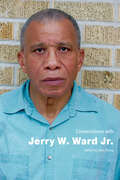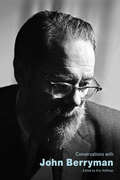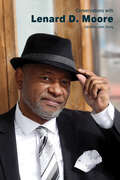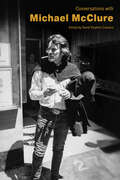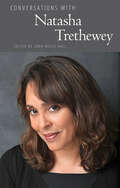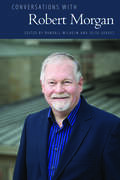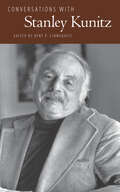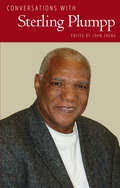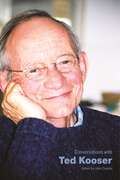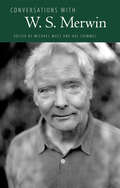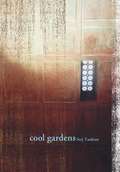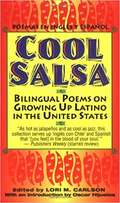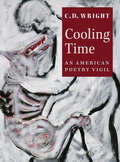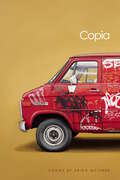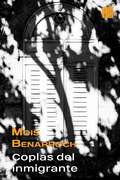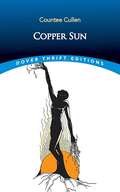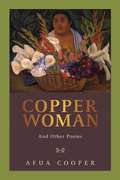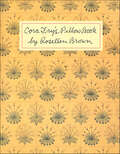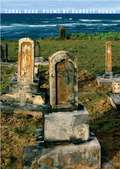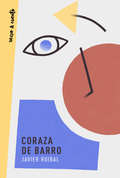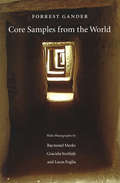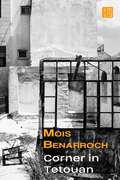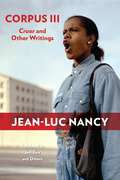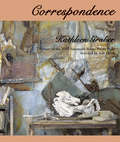- Table View
- List View
Conversations with Jerry W. Ward Jr. (Literary Conversations Series)
by John ZhengJerry W. Ward Jr. (b. 1943) has published nonfiction, literary criticism, encyclopedias, anthologies, and poetry. Ward is also a highly respected scholar with a specialty in African American literature and has been recognized internationally as one of the leading experts on Richard Wright. Ward was Lawrence Durgin Professor of Literature at Tougaloo College, served as a member of both the Mississippi Humanities Council and the Mississippi Advisory Committee for the US Commission on Civil Rights, and cofounded the Richard Wright Circle and the Richard Wright Newsletter. He has won numerous awards, and in 2001 he was inducted into the International Literary Hall of Fame for Writers of African Descent. Conversations with Jerry W. Ward Jr. aims to add an indispensable source to American literature and African American studies. It offers an account of Ward's intelligent and thoughtful responses to questions about literature, literary criticism, teaching, writing, civil rights, Black aesthetics, race, and culture. Throughout the fourteen interviews collected in this volume that range from 1995 to 2021, Ward demonstrates his responsibilities as a contemporary scholar, professor, writer, and social critic. His charming personality glimmers through these interviews, which, in a sense, are inner views that allow us to see into his mind, understand his heart, and appreciate his wit.
Conversations with John Berryman (Literary Conversations Series)
by Eric HoffmanThe poetry of John Berryman (1914–1972) is primarily concerned with the self in response to the rapid social, political, sexual, racial, and technological transformations of the twentieth century, and their impact on the psyche and spirit, both individual and collective. He was just as likely to find inspiration in his local newspaper as he was from the poetry of Hopkins or Milton. In fact, in contrast to the popular perception of Berryman drunkenly composing strange, dreamlike, abstract, esoteric poems, Berryman was intensely aware of craft. His best work routinely utilizes a variety of rhetorical styles, shifting effortlessly from the lyric to the prosaic. For Berryman, poetry was nothing less than a vocation, a mission, and a way of life. Though he desired fame, he acknowledged its relative unimportance when he stated that the “important thing is that your work is something no one else can do.” As a result, Berryman very rarely granted interviews—“I teach and I write,” he explained, “I’m not copy”—yet when he did the results were always captivating. Collected in Conversations with John Berryman are all of Berryman’s major interviews, personality pieces, profiles, and local interest items, where interviewers attempt to unravel him, as both Berryman and his interlocutors struggle to find value in poetry in a fallen world.
Conversations with Lenard D. Moore (Literary Conversations Series)
by John ZhengKnown internationally for his Japanese-style poetry, Lenard D. Moore (b. 1958) has published eight poetry collections over the course of his career. Moore has distinguished himself especially in such forms as jazz poetry, haiku, tanka, renga, sequence, and haibun, expressing moments of aesthetic delight as well as a voice enriched with African American culture. Conversations with Lenard D. Moore is a fundamental collection of sixteen interviews with the esteemed writer and former president of the Haiku Society of America.To Moore, jazz is a joyful celebration of American life and culture. The impacts of such great jazz musicians as Max Roach, John Coltrane, Thelonious Monk, Duke Ellington, and Ray Charles are clear in his poetry. The conversations collected here lead the reader into Moore’s creative mind, demonstrating his fusion of African American music, culture, and history into poetry, especially his jazz poetry, jazzku, and bluesku. In interviews that range from 1995 to 2023, Moore reveals his capabilities and responsibilities as a contemporary poet, professor, mentor, editor, and organizer. This volume serves as an indispensable source for writers and readers of poetry and African American literature.
Conversations with Michael McClure (Literary Conversations Series)
by David Stephen CalonneConversations with Michael McClure features twenty interviews from 1969 to 2015 that chronicle the capacious scope of McClure’s creativity. McClure (1932–2020) is notable not only for his considerable achievements as a poet and prose writer of the Beat Generation, but also for the many collaborative connections he forged over seven decades. From the 1950s to his death, McClure worked with an astonishing range of important figures in the worlds of painting, filmmaking, music, and science. McClure counted among his friends and acquaintances Bruce Conner, Harold Pinter, Amiri Baraka, Richard Brautigan, Wallace Berman, George Herms, Lawrence Jordan, Dennis Hopper, Bob Dylan, Janis Joplin, Jim Morrison, Ray Manzarek, Sterling Bunnell, Francis Crick, Gary Snyder, Francesco Clemente, and Diane di Prima.During his early years in San Francisco, McClure attended Kenneth Rexroth’s literary evenings and formed significant lifelong friendships. Among those friends were poets Philip Lamantia and Robert Duncan, who became a mentor to McClure. He also learned much from Charles Olson and adopted several features of Olson’s concept of “Projective Verse” in his own work. McClure’s exchange of letters with experimental filmmaker Stan Brakhage lasted for four decades. During his illustrious career, McClure published fourteen books of poetry, eight books of plays, and four collections of essays. Conversations with Michael McClure reveals the many contributions of this central personality in the evolution of the American counterculture.
Conversations with Natasha Trethewey (Literary Conversations Series)
by Joan Wylie HallUnited States Poet Laureate Natasha Trethewey (b. 1966) describes her mode as elegiac. Although the loss of her murdered mother informs each book, Trethewey's range of forms and subjects is wide. In compact sonnets, elegant villanelles, ballad stanzas, and free verse, she creates monuments to mixed-race children of colonial Mexico, African American soldiers from the Civil War, a beautiful prostitute in 1910 New Orleans, and domestic workers from the twentieth-century North and South. Because her white father and her black mother could not marry legally in Mississippi, Trethewey says she was "given" her subject matter as "the daughter of miscegenation." A sense of psychological exile is evident from her first collection, Domestic Work (2000), to the recent Thrall (2012). Biracial people of the Americas are a major focus of her poetry and her prose book Beyond Katrina, a meditation on family, community, and the natural environment of the Mississippi Gulf Coast. The interviews featured within Conversations with Natasha Trethewey provide intriguing artistic and biographical insights into her work. The Pulitzer Prize-winning poet cites diverse influences, from Anne Frank to Seamus Heaney. She emotionally acknowledges Rita Dove's large impact, and she boldly positions herself in the southern literary tradition of Faulkner and Robert Penn Warren. Commenting on "Pastoral," "South," and other poems, Trethewey guides readers to deeper perception and empathy.
Conversations with Robert Morgan (Literary Conversations Series)
by Randall Wilhelm and Jesse GravesRobert Morgan (b. 1944) is one of the most distinguished writers in southern and Appalachian literature, celebrated for his novels, poetry, short fiction, and historical and biographical writing, totaling more than thirty volumes. Morgan’s work gives voice to the traditionally underrepresented people of southern Appalachia, and his appearances in such popular venues as The Oprah Winfrey Show, National Public Radio’s Morning Edition, and the New York Times Bestseller List have contributed to his wide readership and successful dismantling of Hollywood stereotypes that still dog the region in the nation’s larger consciousness. His writing makes a case for the dignity of work, the beauty and terror of the landscape, and the essential value of creating a community and learning to live in the world.The interviews in Conversations with Robert Morgan provide readers and scholars the first stand-alone book on Morgan’s long and fascinating career as a master of multiple genres, and make a significant contribution to the understanding of American, southern, and Appalachian literature and culture. Collected here are five decades of interviews that cover such topics as literary influence, the impact of war on family and community, poetic and narrative craft, the role of environmentalism in American literature, and the journey from impoverished North Carolina mountain boy to award-winning Ivy League professor. Morgan is Kappa Alpha Professor of English at Cornell University, where he has taught since 1971. Readers will learn about writing across multiple genres, craft that can be learned and practiced by a writer, and studying the past for those present truths that create what Morgan values most in literature, “a community across time.”
Conversations with Stanley Kunitz (Literary Conversations Series)
by Kent P. Ljungquist“He again tops the crowd—he surpasses himself, the old iron brought to the white heat of simplicity.” That's what Robert Lowell said of the poetry of Stanley Kunitz (1905–2006) and his evolving artistry. The interviews and conversations contained in this volume derive from four decades of Kunitz's distinguished career. They touch on aesthetic motifs in his poetry, the roots of his work, his friendships in the sister arts of painting and sculpture, his interactions with Lowell and Theodore Roethke, and his comments on a host of poets: John Keats, Walt Whitman, Randall Jarrell, Wallace Stevens, and Anna Akhmatova. Kunitz emerged from a mid-sized industrial town in central Massachusetts, surviving family tragedy and a sense of personal isolation and loneliness, to become an eloquent spokesman for poetry and for the power of the human imagination. Kunitz has commented, “If we want to know what it felt like to be alive at any given moment in the long odyssey of the race, it is to poetry we must turn.” His own odyssey from “metaphysical loneliness” to a sense of community with fellow writers and artists—by building institutions like Poets House and the Fine Arts Work Center in Provincetown, Massachusetts—is ever present in these interviews.
Conversations with Sterling Plumpp (Literary Conversations Series)
by John ZhengConversations with Sterling Plumpp is the first collection of interviews with the renowned poet of Home/Bass and other much-admired works. Spanning thirty years and drawn from literary and scholarly journals and other media, these interviews offer insights into his poetic innovation of blues and jazz and his mastery of black vernacular in poetry. This collection seems fundamental to an understanding of the life and work of an African American poet who has been innovative in fusing blues and jazz rhythms with poetic insight and in vivifying the vernacular landscape of African American poetry.Born in 1940 in Clinton, Mississippi, Plumpp has been living in Chicago since 1962. Home/Bass received the 2014 American Book Award. The finest blues poet of his generation, Plumpp became a model for contemporary poetry and poetics and a leading figure in the tradition of blues/jazz poetry. He continues to reinvent the language while exploring the registers of individual and communal memory and of local, national, and global history. His poetry is important in attempts to define the black aesthetic from the era of the Harlem Renaissance to the seminal Black Arts Movement. It is also important for its re-articulation of the Great Migration, especially expressed by blues musicians who left Mississippi for Chicago.
Conversations with Ted Kooser (Literary Conversations Series)
by John CusatisIn twenty-one interviews spanning nearly half a century, Conversations with Ted Kooser chronicles the Nebraska writer’s rise from a regional poet of the Great Plains to a Pulitzer Prize–winning artistic luminary. His candor, clarity, and eloquence, which distinguish Kooser’s plentiful body of work, color these edifying and entertaining conversations. The interviews in Conversations with Ted Kooser are conducted by esteemed poets and critics, radio hosts, and journalists. They discuss Kooser’s life and career as well as his award-winning poetry, prose, and children’s books. The collection includes two previously unpublished interviews, separated by a twenty-year period, with poet/scholar Mary K. Stillwell, author of The Life and Poetry of Ted Kooser, as well as live interviews broadcast on NPR’s Fresh Air with Terry Gross and Library of Congress host Grace Cavalieri’s The Poet and the Poem. The book also features thirty of Kooser’s poems, accompanied by his commentary on their genesis. Seventeen of these are drawn from his Pulitzer Prize–winning collection, Delights & Shadows. Kooser (b. 1939) is a two-term United States Poet Laureate, dedicated to making engaging poetry available to all readers. His syndicated newspaper column, “American Life in Poetry,” begun during his tenure as poet laureate, delivered contemporary poems by poets from across the nation to more than four million readers, long after his laureateship ended. Now in his mid-eighties, Kooser remains highly prolific and internationally popular, continuing to compose life-affirming—and, as many attest, life-changing—poems, celebrating the wonders of the natural world, the subtle grandeur of human connection, and the unifying order he observes in all creation.
Conversations with W. S. Merwin (Literary Conversations Series)
by Michael Wutz and Hal CrimmelConversations with W. S. Merwin is the first collection of interviews with former United States Poet Laureate W. S. Merwin (b. 1927). Spanning almost six decades of conversations, the collection touches on such topics as Merwin's early influences (Robert Graves and Ezra Pound), his location within the twin poles of Walt Whitman and Henry David Thoreau, and his extraordinary work as a translator, as well as his decades-long interest in environmental conservation. Anticipating the current sustainability movement and the debates surrounding major and minor literatures, Merwin was, and still is, a visionary.He is among the most distinguished poets, translators, and thinkers in the United States. A major link between the period of literary modernism and its contemporary extensions, Merwin has been a force in American letters for many decades, and his translations from the Spanish, French, Italian, Japanese, and other languages have earned him unanimous praise and admiration. Merwin also wrote at the forefront of literature's environmental advocacy and early on articulated concerns about ecology and sustainability.Conversations with W. S. Merwin offers insight into the various dimensions of Merwin's thought by treating his interviews as a self-standing category in his oeuvre. More than casual narratives that interpret the occasional poem or relay an occasional experience, they afford literary and cultural historians a view into the larger throughlines of Merwin's thinking.
Cool Daddy Rat
by Kristyn CrowEvery night, Cool Daddy Rat takes his bass case and goes out to play jazz and scat around the city. But one night he hears something strange: Peeky squeaky who dat? It's his son, Ace, hiding in the bass case! After a reassuring call to Mama, the pair go all over the city together, filling the streets with his sweet beat. And when Ace can't contain himself any longer, Cool Daddy Rat finds out he's the best scatter in the family. Image descriptions present.
Cool Gardens
by Serj TankianFrom Serj Tankian, lead vocalist for critically acclaimed band System of a Down, comes a striking debut poetry collection highlighting his best work of the past eight years.
Cool Salsa: Bilingual Poems on Growing Up Latino in the United States
by Lori M. CarlsonPoemas en Inglés y Español.
Cooling Time
by C. D. WrightC. D. Wright takes her title from a line of legal defense, peculiar to Texas courts, in which it is held that if a man kills before having had time "to cool" after receiving an injury or an insult he is not guilty of murder.Cooling Time is a new type of book, an unruly vigil that is an interconnected memoir-poem-essay about contemporary American poetry. Ever focused on possibilities, Wright demonstrates that "the search for models becomes a search for alternatives," and thereby defines the terms by which poets can chart their own course.These are some of the things I have touched in my life that are forbidden: paintings behind velvet ropes, electric fencing, a vault in an office, gun in a drawer, my brother's folding money, the poet's anus, the black holes in his heart--where his life went out of him.Tell me, what is the long stretch of road for if not to sort out the reasons why we are here and why we do what we do, from why we are not in the other lane doing what others do.Poetry is like food remarked one of my first teachers, freeing me to dislike Rocky Mountain Oysters and Robert Lowell. The menu is vast, the list of things I don't want in my mouth relatively short.C.D. Wright, author of nine books of poetry, teaches at Brown University. She lives in Providence, Rhode Island, with poet Forrest Gander.
Copia
by Erika Meitner"The poems in Copia are about what is and what is almost-gone, what is in limbo and what won't give way, what is almost at rock bottom but still and always brimming with the possibility of miracle."—Rachel ZuckerErika Meitner's fourth book takes cues from the Land Artists of the 1960s who created work based on landscapes of urban peripheries and structures in various states of disintegration. The collection also includes a section of documentary poems about Detroit that were commissioned for Virginia Quarterly Review.Because it is an uninhabited place, because itmakes me hollow, I pried open the pages ofDetroit: the houses blanked out, factoriesabsorbed back into ghetto palms and scrub-oak, piles of tires, heaps of cement block.Vines knock and enter through shattereddrop-ceilings, glassless windows. Ragwortcracks the street's asphalt to unsolvablepuzzles.Meitner also probes the hulking ruins of office buildings, tract housing, superstores, construction sites, and freeways, and doesn't shy from the interactions that occur in Walmart and supermarket parking lots.It is nearly Halloween, which meanswrong sizes on Wal-Mart racks, variety bags ofpumpkins extinguishing themselves on the stoopchildren from the trailer park trawling our identical lawns soonso we can give away nickels, light, sandpaper, raisins, cement.Erika Meitner was a 2009 National Poetry Series winner. Her work has appeared in American Poetry Review, Ploughshares, Tin House, The Best American Poetry 2011, Kenyon Review, and elsewhere. She is associate professor of English at Virginia Tech.
Coplas del inmigrante
by Mois Benarroch Laura Irene González MendozaEn este poemario, Mois Benarroch hace un retrato muy personal de la migración y del arte de vivir entre dos mundos sin pertenecer a ninguno. Incluye su poema más celebrado, que es el que da nombre a este libro. El té nunca llegó ~~~~~~~~~~~~~~~~ Los aviones volaron sobre nosotros los trenes dejaron la estación pero el té nunca llegó. Nos bebimos el agua nos bebimos el jugo pero el té nunca llegó. Esperamos hasta que olvidamos qué estábamos esperando pero el té nunca llegó. Escuchamos bombas afuera algunos dijeron que era una guerra, otros que sólo un robo pero el té nunca llegó. Algunos nos hicimos viejos, muy viejos nuestros dientes se salieron, nuestra barba encaneció pero el té nunca llegó. Y sin embargo nunca nadie preguntó por el té nadie en realidad recordó qué estábamos esperando, y eso no ayudó el té nunca llegó.
Copper Sun (Dover Thrift Editions: Poetry)
by Countee CullenCountee Cullen (1903–46) was an African American poet, playwright, and novelist and a leading figure in the Harlem Renaissance. Copper Sun, a collection of over fifty poems, is his second book of poetry. Cullen explores the emotional consequences of race, religion, and sexuality in Jazz Age America. His lyrics are moving, eloquent, and poignant and are as powerful today as when they were first published nearly a century ago. Accompanied by seventeen beautiful Art Deco illustrations from the original publication, his poems will open up conversations about courage, heartache, identity, love, and more while nourishing your spirit every step along the way.
Copper Woman: And Other Poems
by Afua CooperCopper Woman and Other Poems is a collection of poems that announces a humanistic vision, dealing with such themes as rebirth (physical and symbolic), mythology, memory, bondage, blood, family, identities in flux, migration, politics and flights of fancy. The contents move back and forth between the past and the present, and project into the future, envisioning a new world/a new creation. The message that we are our brothers and our sisters keepers and that the earth is our home – a home that we must protect and keep safe if we are to survive – resonates throughout. Copper Woman is a call to arms against apathy and all forms of tyranny. It is liberatory dub poetics that say equality and equity are possible and within reach. It invites its readers to cast off their chains and shackles and proclaim their freedom. It invites us all to grasp a greater vision of our world. Jamaican-born Dr. Afua Cooper has achieved considerable success as a dub poet and as the author of a children’s book, a collection of poetry and as co-author of The Underground Railroad: Next Stop, Toronto! Dr. Cooper is a recent recipient of the Harry Jerome Award for Professional Excellence.
Cora Fry's Pillow Book
by Rosellen BrownThrough the persona of Cora Fry, a wife and mother living in a small New Hampshire town, Rosellen Brown explores the ambivalent ties of love, loyalty, marriage, and family in a series of related poems. This volume includes the entire text of Cora Fry (1977), a kind of dramatic monologue, written in spare, simple lines, which describes the young woman's daily life and troubled marriage. A sequel of newer poems, Cora Fry's Pillow Book (1994), confronts the challenges that come with a woman's growth toward middle age, reflecting an older Cora's place in her family, community, and the larger world.
Coral Road: Poems
by Garrett HongoGarrett Hongo's long-awaited third collection of poems is a beautiful, elegiac gathering of his Japanese-American ancestors in their Hawaiian landscape and a testament to the power of poetry, as it brings their marginalized yet heroic narratives into the realm of art.In Coral Road Hongo explores the history of the impermanent homeland his ancestors found on the island of O'ahu after their immigration from southern Japan, and meditates on the dramatic tales of the islands. In sumptuous narrative poems he takes up strands of family stories and what he calls "a long legacy of silence" about their experience as contract laborers along the North Shore of the island. In the opening sequence, he brings to life the story of his great-grandparents fleeing from one plantation to another, finding their way by moonlight along coral roads and railroad tracks. As his grandmother, a girl of ten with an infant on her back, traverses "twelve-score stands of cane / chittering like small birds, nocturnal harpies in the feral constancies of wind," Hongo asks, "Where is the Virgil who might lead me through the shallow underworld of this history?" In fact, it is Hongo who guides himself--and us--as, in these devoted acts of recollection, he seeks to dispel the dislocation at the center of his legacy.The love of art--making beauty in however provisional a culture--has clearly been a guiding principle in Hongo's poetry. In this content-rich verse, Hongo hearkens to and delivers "the luminous and the anecdotal," bringing forth a complete aesthetic experience from the shards that make up a life.From the Hardcover edition.
Coraza de barro
by Javier RuibalJavier Ruibal, uno de los cantautores más admirados y lúcidos de nuestra época, reciente ganador del Goya a la mejor canción, nos regala su primer poemario. «Guardaste del daño memoria indeleblepor toda defensa, coraza de barro,carne, desgarro y escalofrío». Una disección, un autorretrato de filias y fobias, un pequeño puñado de miedos, unas pocas esperanzas y alguna manía poco saludable. Eso guarda cuidadosamente este libro. Un conjunto de poemas en los que Javier Ruibal, uno de los artistas más valorados y talentosos de nuestro panorama musical, se desnuda para ordenarse por dentro. Clasificados en una suerte de metáfora de ritmos y fórmulas musicales, el autor nos regala poemas libres, décimas y haikus que hablan de amor, del paso del tiempo y del encuentro con uno mismo en la vida y en el arte, dejando también un pequeño lugar para el humor y la sorna.
Core Samples from the World
by Forrest Gander Graciela Iturbide Lucas Foglia Raymond MeeksA gorgeous, wide-ranging volume of poetry and essays by Forrest Gander, studded with the work of three great photographers. Forrest Gander's Core Samples from the World is a magnificent compendium of poetry, photography, and essay (a form of Japanese haibun). Collaborating with three acclaimed photographers, Gander explores tensions between the familiar and foreign. His eloquent new work voices an ethical concern for others, exploring empathic relations in which the world itself is fundamental. Taking us around the globe to China, Mexico, Bosnia-Herzegovina, and Chile, Core Samples shows how Gander's "sharp sense of place has made him the most earthly of our avant-garde, the best geographer of fleshly sites since Olson" (Donald Revell, The Colorado Review).
Corner in Tetouan
by Mois Benarroch J. P. CarrilloBook of poems published by Esquio directed by Julio Uceda. Mois Benarroch was born in Tetouan, Morocco, in 1959. At thirteen, he emigrates with his parents to Israel and lives in Jerusalem ever since. He started to write poetry at fifteen in English, then in Hebrew, and finally in his native tongue, Spanish. He published his first poems in 1979. In the 80s, he was part of vanguardist movements and was the editor of Marot magazine. His first book in Hebrew was published in 1994 under the title "The Immigrant's Couplets". He also published two books of stories, several books of poems in Hebrew, English, and Spanish, and four novels. In 2008 he won the Prime Minister's prize in Israel. In Spain, he has published his book of poems "Corner in Tetouan" (Esquío, 2000) and in 2005 the novel "Lucena" (Lf ediciones). In 2008, the publishing house Destino publishes his novel "At the Doors of Tanger". And in 2010, Escalera published "Love and Exiles". Benarroch has won the Prime Minister award (2008) and the Yehuda Amichay prize.
Corpus III: Cruor and Other Writings
by Jean-Luc NancyA beautiful, profound series of reflections on the body by one of the most prominent and consequential philosophers of continental EuropeThis landmark volume brings into English Jean-Luc Nancy’s last completed work and concludes his remarkable philosophical reflections on the body, a project he began almost thirty years ago. Taking the body as an intersection of pulsing life and destructive cruelty on a global scale, Nancy’s account becomes more vivid, more physical, than ever, even as it ventures into language that is as lyrical as it is profound. This vividness is manifest in blood: as it flows, in all its pulsing and forceful circulation, and as it spills, in the cruelty of existences confronted daily by countless destructions. This can be described as sanguis and cruor, the two Latin words for blood’s intermingled but distinct aspects. This distinction allows Nancy to highlight an almost mystical sense of the body (yet one that remains soberly on this side of its manifest insistence), alongside the cruelty that pervades our world—a world whose very existence is threatened by its reduction to mere objects.The exceptional writings brought together in Corpus III comprise a masterful work of philosophy that marries rigorous erudition—on Freud, Nietzsche, and others—with rich poetic language and an actual poem. Nancy’s thought opens the body onto its own unaccountable origins, its plural singularities, its enmeshed instantiations, and its excessive irreducibles, which are also the elusive excesses of language. Whereas in earlier texts Nancy has referred to this excess as poetry, here he performs it in the form of a poem, in the extraordinary hymn entitled Stoma. While the publication of a poem by Nancy is a notable event, equally noteworthy is a remarkable essay entitled “Scandalous Death,” in which Nancy meditated on a subject that was to come to him too soon after. Above all, the book is crucial for bringing into English Cruor, the very last book Nancy completed before his death, an evocative meditation offered by a great thinker on the complex conditions of his own—and our—singular survival.
Correspondence
by Kathleen Graber"Correspondence," writes Mark Doty, "is a fresh accomplishment, swift with feeling and intelligence, the work of a restless critical mind mapping its way toward a way to bear the weight of love." Kathleen Graber's debut book takes us on a trip through history and time, varying her subjects with speed and seamlessness, to a dizzying, dazzling effect. From the Philadelphia Eagles to Cornell's boxes, from a fertility clinic to Daguerre's prints, from Kafka to running over two cats, from Annette Benning to Marianne Moore, Kathleen Graber's poems embrace what her inquisitive mind traverses, ensnaring past and present, familiar and foreign, soulful and scientific, in a celebration of chaos that is generous and healing.
